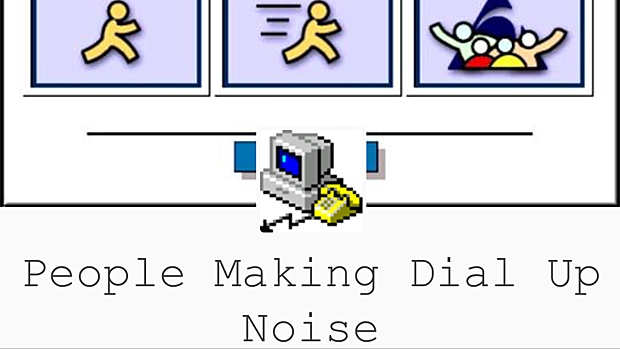Tagged: SEO
How Digital Assistants Could Replace Search Engines
- by Alyson Shane
Back when I was a kid, the term "personal digital assistant" usually referred to one of these:

(remember Palm Pilots? No? Just me?)
Nowadays, your personal digital assistant (or PDA, for short) refers to something much more literal, though much more incorporeal. Apple's Siri and the super-popular Google Now (which I use every day and love) are just two examples of modern-day voice recognition software which allows us to speak our commands and questions into our smartphones and get real, tangible results.
I've been using Siri for a while, but my recent foray into Google Now's voice recognition has me thinking about the future of personal digital assistants, and what this means for the future of search engines and SEO.

Our Searches are More Sophisticated
Back in the early days of Google their algorithm was pretty simple: keywords typed into the search box were matched with keywords on websites, and links were counted and mixed in order to determine a ranking system.
These days search engines are much more sophisticated, using a process called semantic search to analyze the intent behind a search query, not just the search query itself, and to rank the most appropriate results based on both of those factors (this is why tactics like keyword-stuffing work against modern websites.)
Similarly to the early days of search engines, digital assistants are becoming more sophisticated all the time. Newer versions of Siri struggled with interpreting spoken words for garbled speech, and generally being unhelpful. However, recent updates to Siri and Google Now have extremely accurate voice recognition capabilities and are quickly learning to adapt to issues like thick accents in a way that, previously, they were unable.
Integrated Internet & Wearables
Okay, so I've told you why digital assistants are being used more often, but why would anyone be using them in place of a conventional search engine?
One of the major differences is that our technology has become interwoven with our everyday lives - once upon a time, not too long ago, the Internet existed as a separate place that we "dialled into" at clunky desktop computers, opened a browser, and typed in our search query. These days, almost all of our devices (smartphone, desktops, laptops, etc) are connected to the internet automatically, making the Internet an integral part of our lives.
The biggest reason for this, of course, are smartphones. The introduction of the iPhone and the subsequent waves of mobile devices featuring web browsing, mobile apps, and a variety of other features means we're always connected to the Internet.
Additionally, as "wearables" like the Apple Watch, the Android Wear, and a variety of other kinds of "smart watches" become increasingly more popular, the need for better and more accurate digital assistants to replace typing searches into a tiny screen will likely increase as well.
What all of this this means is that the Internet isn't some place that you physically go to in order to find information; it's all around us, all the time, and it's becoming available on increasingly smaller screens than ever before. It also means that because we're constantly searching for things on-the-go, a browser-based website might not be the best or most efficient way to look for it.
The Effect on SEO

As the ways in which we search for and find information change, so too will the ways that search engines find, organize and display results. Below are a few ways that I think voice-based searching and the increasing popularity of digital assistants could influence how we search:
Voice-Based Queries
We've already discussed this increase a bit earlier in this post, but if the trend continues we'll start to see spoken queries become longer and more conversational. What this means for bloggers, marketers and other people like me is that having "conversational content" (like what you're reading right now) will become the ideal kind of content to match up with colloquial queries.
This also means that current SEO strategies will have to become more general, and will be less reliant on keywords or short phrases than they currently are.
The Rise of Instant Answers
We're already started to see the beginning of the instant-answer phenomenon with Google's Knowledge Graph, which is a system that provides answers to questions and queries without forcing users to visit a specific website like Wikipedia or IMDB.
If you're not familiar with how Google's Knowledge Graph works, and it's purpose, this quote from super-smart Neil Patel should do a better job of explaining it than I can:
The search engine is primarily designed to collate data about everything on the face of the earth, sync the data with their search algorithm, and make the information accessible quickly and easily, no matter what platform the searcher uses.
Digital assistants will take this further, giving users clever, concise answers rather than redirecting them to a Wikipedia page, or a recipe page with six paragraphs and fourteen photos before the actual recipe. This means that websites may see a dip in traffic and visibility.
Geographic Relevance
Personal aside: this has been one of my favourite things about Google Now. I love having an app that knows where I am and can tell relevant information based on my past queries without having to search for it. Heaven!
Anyway... Since digital assistants are generally used on the go, local businesses can benefit by offering content specific to that geographic region to try and increase foot traffic into their brick-and-mortar stores.
This also opens up interesting new avenues for optimization, where stores could optimize their information so that it gets mentioned by digital assistants more frequently, or when customers are close by.
Meeting Immediacy
Especially as voice recognition becomes even more commonplace and sophisticated, I think we'll see people start to turn to their digital assistants for more immediate and complex needs. So we'll be saying more complex commands like "find me an East Indian restaurant open past 8pm tomorrow night" as opposed to searching "East Indian restaurants in Winnipeg" and going through a list of restaurant hours, taking up a bunch of time.
This means that the demand for tutorial-like content will likely increase, which will have an impact on content creators to adapt the way that they write, or how they share audio and video-based content. I'm looking at you, 1000+ word long recipe articles.
What Does All This Mean?
To quote the ever-wise Bob Dylan "the times, they are a-changin'" and technology is continuing to shape how we live our lives at an increasingly aggressive pace.
While it may take some time for digital assistants to replace search engines, I do think that voice recognition is the way of the future, and that we'll eventually see most forms of traditional text-based search engines become phased out. This means that content creators, marketers, and other digital-types will have to adapt our strategies in order to continue to get noticed.
What are your thoughts on digital personal assistants and SEO? Tell me in the comments!
